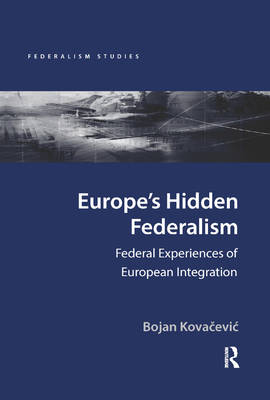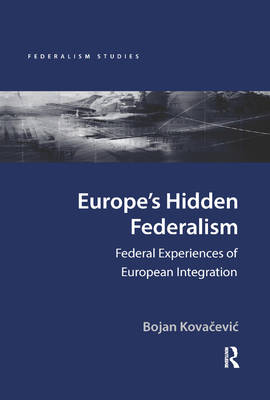
- Retrait gratuit dans votre magasin Club
- 7.000.000 titres dans notre catalogue
- Payer en toute sécurité
- Toujours un magasin près de chez vous
- Retrait gratuit dans votre magasin Club
- 7.000.0000 titres dans notre catalogue
- Payer en toute sécurité
- Toujours un magasin près de chez vous
Description
The hidden federal features of the European Union help explain the challenges of legitimacy, democracy and freedom that face an unfinished political community. Ideas about federalism and the reality of existing federal states cannot be sharply divided in an analysis of the EU's multilevel political order, but so far, both scholars and major decision makers have shown interest only in the normal functioning of federal systems: ignoring the dilemma of the federation's legitimate authority has resulted in an existential crisis for the EU which has become ever more manifest over recent years. This book employs a combination of political philosophy and political science, of federal philosophic ideas and their traces in real federal institutions, in order to achieve the task of understanding the federal features of the EU governance system.
The first part of the work focuses on building an appropriate theoretical framework to explain the new meanings attached to familiar notions of democracy, legitimacy and citizenship in the context of a political community like the EU. In the second part the federal features of the EU's political system are examined in comparison to other current and historical federal perspectives like the US, Switzerland, Yugoslavia and Germany. Through an analysis of the hidden federal aspects of the EU and the links between hidden federalism and the EU's legitimacy crisis, this book reveals the patterns that should be avoided and gives us guidelines that should be followed if the EU is to become democratic and politically united without jeopardising the state character of its members.
Spécifications
Parties prenantes
- Auteur(s) :
- Editeur:
Contenu
- Nombre de pages :
- 230
- Langue:
- Anglais
- Collection :
Caractéristiques
- EAN:
- 9780367881412
- Date de parution :
- 12-12-19
- Format:
- Livre broché
- Format numérique:
- Trade paperback (VS)
- Dimensions :
- 156 mm x 233 mm
- Poids :
- 449 g

Les avis
Nous publions uniquement les avis qui respectent les conditions requises. Consultez nos conditions pour les avis.






